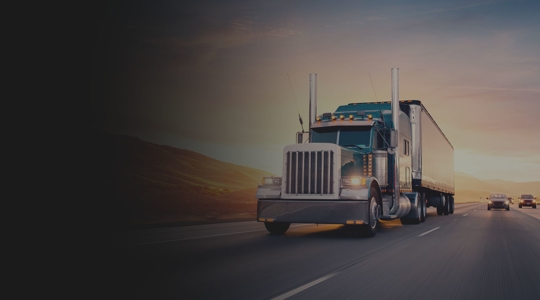How Are Truck Accidents Different from Car Accidents?
Learn What Sets Trucking Accidents Apart from Other Traffic Collisions
The reason truck accidents are so much worse than passenger vehicle collisions comes down to physics. Tractor trailers can weigh up to 80,000 pounds, while most passenger vehicles weigh below 4,000 pounds.
The difference in weight means a truck will collide with far more force than even the most massive passenger vehicle can withstand. That is why 97% of deaths in fatal truck crashes are passenger vehicle occupants.
A semi-truck or big rig can literally crush a smaller vehicle. Their larger size also increases the changes of an underride accident, which is one of the most devastating types of truck collisions. The smaller vehicle may get trapped underneath the truck or have its top sheared completely off. In any trucking accident, the chance of significant property damage, serious injury, and death is higher than a passenger vehicle crash.
Lack of Visibility & Immediate Stopping Power
It is also more difficult for a truck to see the road and other cars than it is for a standard passenger car, making poor visibility a leading cause of trucking accidents. For example, 18-wheelers have huge blind spots, which can prevent the driver from seeing if another vehicle is present. Entire vehicles can fit inside a truck’s blind spot, putting them at risk when the truck makes a lane change or a turn.
Cars are crushed or forced off the road if a truck driver can't see them. If the driver of a car is unable to see another passenger vehicle, the damage is often far less significant.
Another contributing factor to severe truck accidents is the truck's stopping power. Drivers are unable to respond to sudden accidents, even if they see them in time. Due to a truck’s size and weight, stopping requires 20% to 40% more distance. As a result, collisions with trucks often means the truck is traveling at a far higher speed than a vehicle would be. Higher speed and higher weight mean catastrophic levels of injury.
Rollover Accidents & Jackknifing
Unfortunately, trucks are also more prone to rollover accidents than standard passenger cars. Tractor-trailers all have a higher center of gravity. In emergency maneuvers (like swerving at high speeds to avoid an obstacle), trucks are far more likely to roll over—crushing passenger vehicles.
Tractor-trailers also have a feature that leads to unique accidents. Because most of their weight is being pulled rather than steered, trucks can lose control of their cargo under certain circumstances. This is known as jackknifing, where the trailer travels in a different direction than the truck itself.
Trucks are especially vulnerable to jackknifing on slippery or icy roads. Drivers have to compensate by driving slower on wet roads. What will often happen is a truck driver may attempt to swerve his truck out of the way of an obstacle or another vehicle, causing the trailer to skid. The sudden swerve will take the truck on a different course while the trailer has too much momentum and continues on the same path. This causes the trailer to pull the truck, potentially trapping passenger vehicles between the truck and trailer or causing a major pile-up within seconds.
The other key difference between a car accident and big rig accident has to do with legal considerations.
